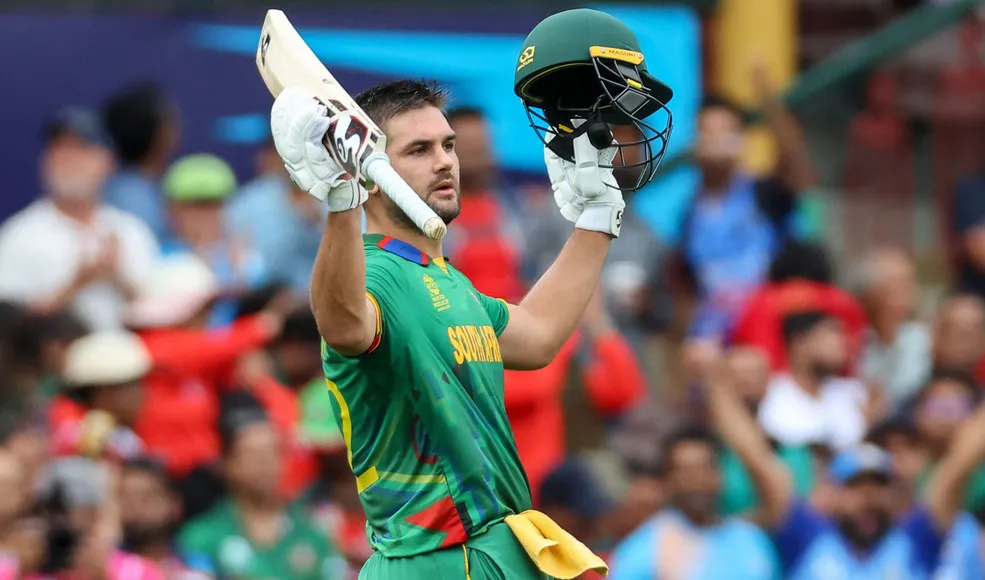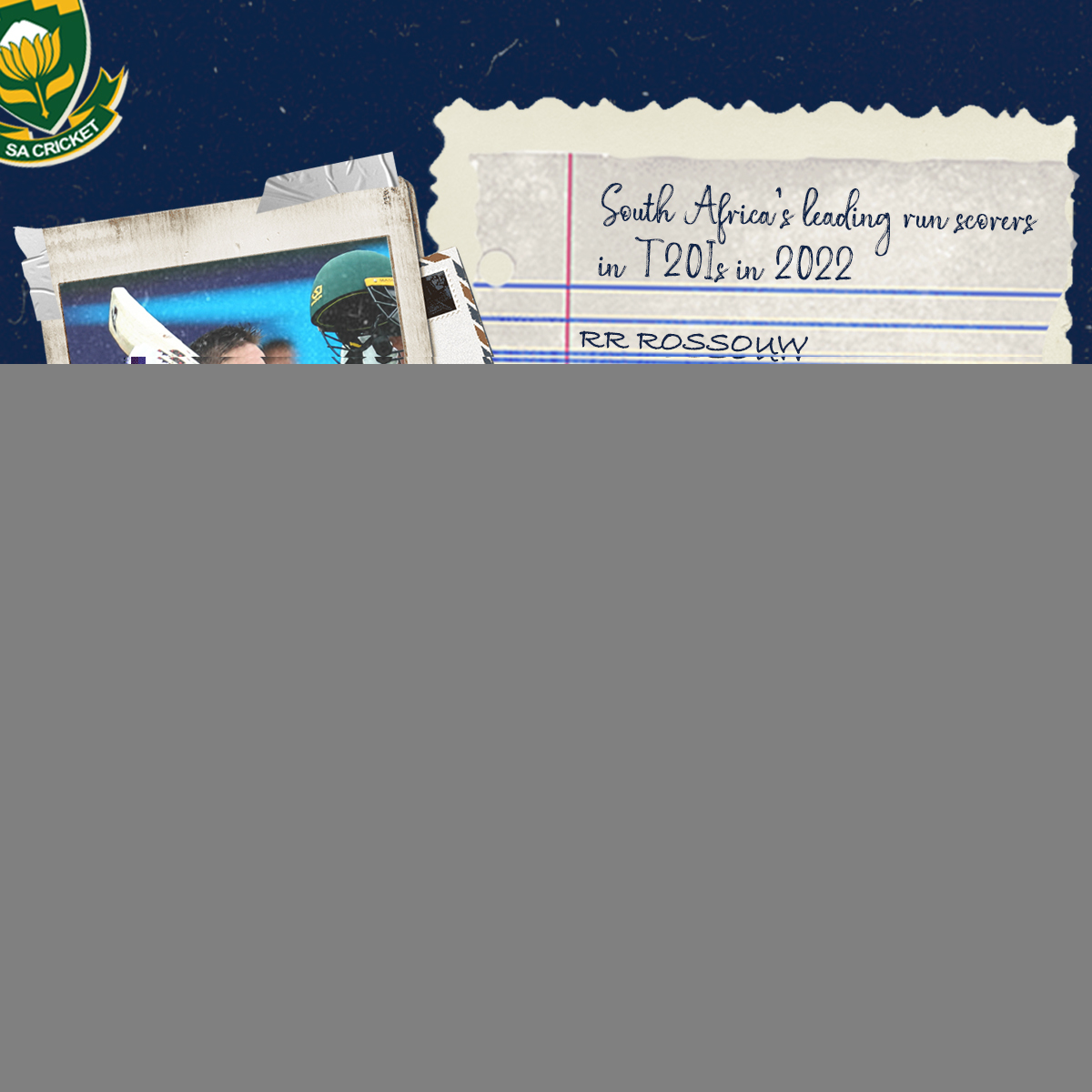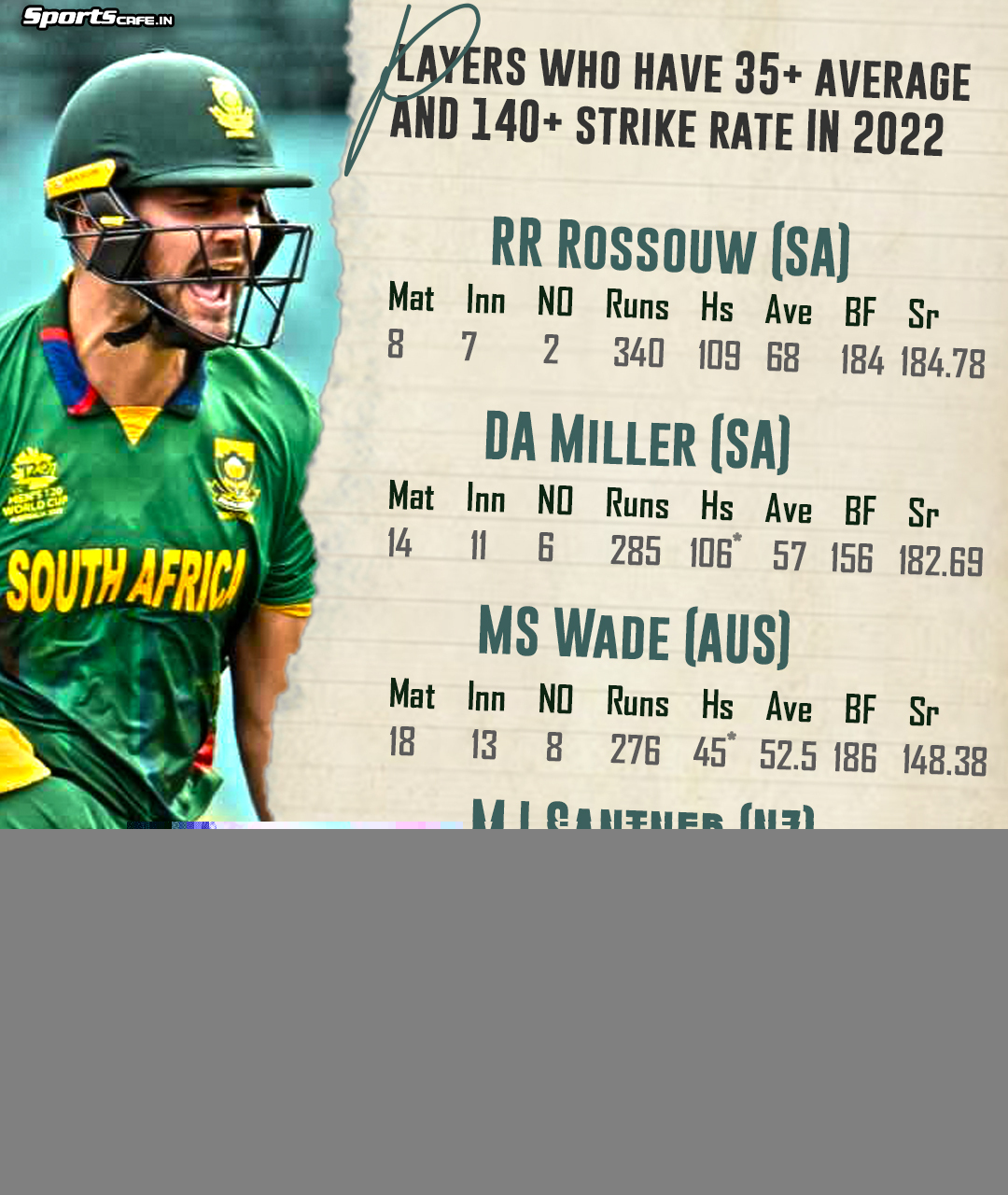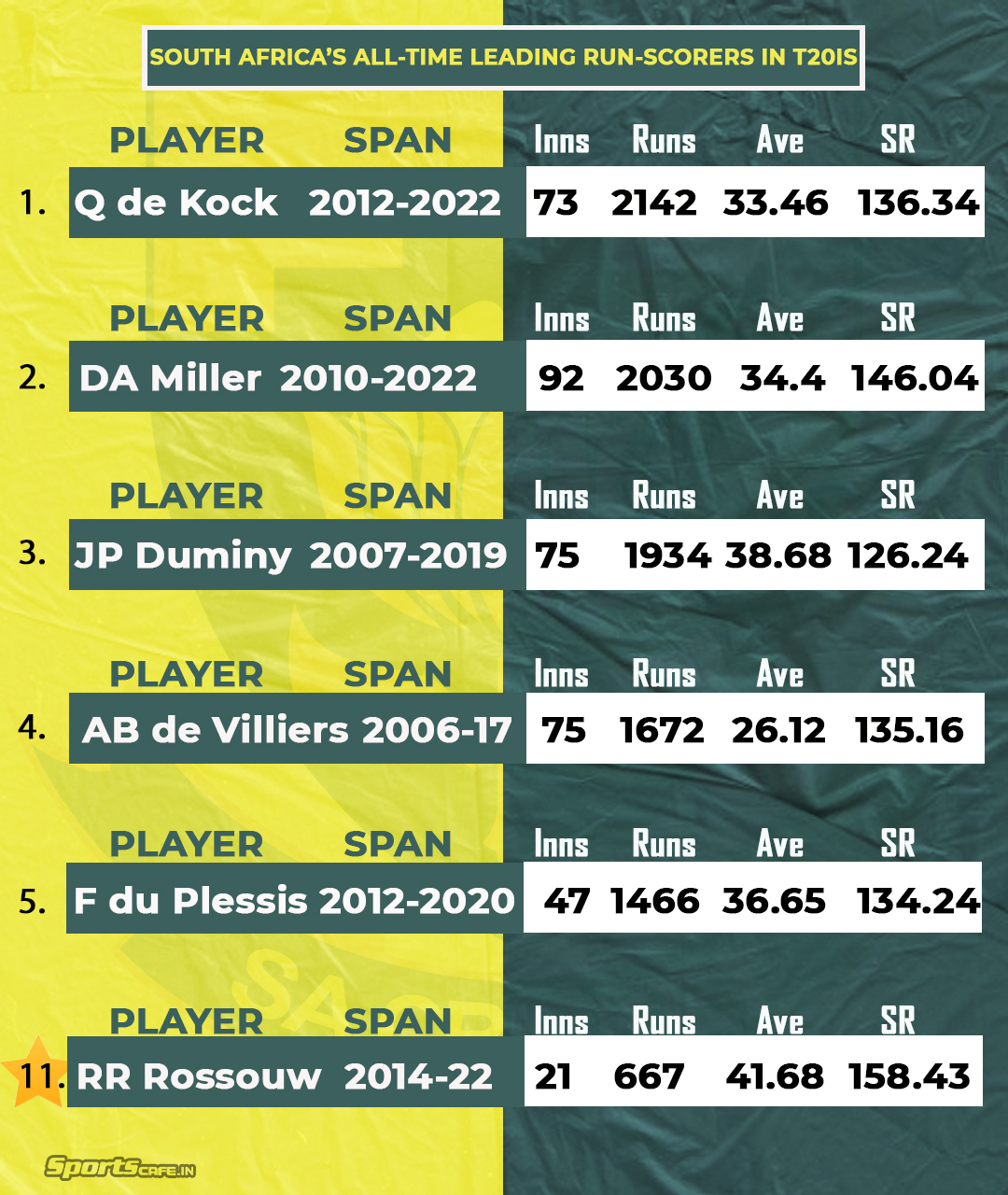Rampant Rilee Rossouw transforming himself as South Africa’s go-to man in T20Is

Rilee Rossouw is making his own comeback story for the ages and how!
Rilee Rossouw’s brief international career seemed to be over in January 2017 when he decided to play as a local player for Hampshire through the Kolpak deal. To make that happen, he had to stop playing for South Africa at the age of 26, considering moving to England would give long-term career security to himself and his family. The ploy went the opposite way as Rossouw failed to come into his own with the county side, causing him to lose the Hampshire contract when the Kolpak ruling finally ended at the end of 2020.
But Rossouw is not among the ones who would give up so lightly. The southpaw rejuvenated himself in Pakistan Super League (PSL) earlier this January, bludgeoning 275 runs from 10 innings at a strike rate of over 167 for Multan Sultans to help them end as runner-ups. Three months later, he silenced his critics in England by finishing as the second-highest run-getter at the Vitality T20 Blast while representing Somerset. They reached the semi-finals there, but a painful defeat from his old county Hampshire ensured Somerset were not going any further.
Rossouw’s performances in Pakistan and England’s franchise competitions won the respect of Cricket South Africa, who, along with their then-coach Russell Domingo, backed him during his first stint between 2014 and 2016, even after watching him fall without scoring five times from his first 10 ODIs. The board recalled Rossouw after six-and-a-half years for their three-match T20I series against England in July-August. Since then, whatever Rossouw is touching has been turning into gold.

 Rilee Rossouw is South Africa's leading run-scorer in T20Is this year. © SportsCafe Graphic Team,
Rilee Rossouw is South Africa's leading run-scorer in T20Is this year. © SportsCafe Graphic Team,Most recently, Rossouw made headlines on Thursday by becoming the first South African to slam a hundred at any T20 World Cup. His aggressive instincts and self-belief were visible throughout his career-best 56-ball 109 against Bangladesh, in which he smacked eight sixes and seven fours. His blitzkrieg was followed by the unbeaten 48-ball 100 which he notched against India in Indore earlier this month. Therefore, with the latest success, he became the second man – only after France’s Gustav McKeon – to hit back-to-back international hundreds in the shortest format. It was not like no one expected the 33-year-old to go that hard against Bangladesh. After all, he tops the chart among the players having a 35+ average and 140+ strike rate in T20Is this year.

 Rilee Rossouw's strike rate of 184 is the highest in 2022 among the players who have 35+ T20I averages © SportsCafe Graphic Team.
Rilee Rossouw's strike rate of 184 is the highest in 2022 among the players who have 35+ T20I averages © SportsCafe Graphic Team.Before CSA brought Rossouw into the fray, Rassie van der Dussen was South Africa’s preferred No. 3 in T20Is. Though van der Dussen’s overall numbers in this format are nowhere near as lofty as they are in the ODIs, he seems to be at the lowest point of his cricket career in 2022 before he broke his left index finger ahead of the World Cup. Before that, he could only manage one substantial contribution (46-ball 75 not out against India in Delhi) out of six T20I innings this year. Although that came in South Africa’s winning cause, his other knocks, including 7-ball 10 and 4-ball 14 against Ireland and 7-ball 1 and 4-ball 1 against India, made little difference to his side.
With a strike rate of 116.44 between 7 and 15 overs since 2018, van der Dussen’s numbers suggest that he tends to play as an anchor. But having David Miller and Quinton de Kock already among the others, the Proteas required a radical No. 3, who dares to unleash from the word go. Thus, by bringing Rossouw into the mix, who is striking at 198.72 in the middle overs, it is no longer a problem for South Africa.

 Rilee Rossouw's numbers in Australia, and in PSL 2022, Vitality T20 Blast 2022. © SportsCafe Graphic Team.
Rilee Rossouw's numbers in Australia, and in PSL 2022, Vitality T20 Blast 2022. © SportsCafe Graphic Team.Interestingly, whenever Rossouw demonstrates his prowess during his second stint, South Africa end up winning the contests. In South Africa’s four T20I victories since his return, Rossouw’s scores read 55-ball 96 not out, 18-ball 31, followed by two centuries. On the other three occasions, when he fell without scoring and departed cheaply for four runs, South Africa endured big-margin defeats twice. And in the other game, de Kock and Miller stepped up to avoid humiliation even if they could not prevent the loss.
Though de Kock and Miller have been taking the load for South Africa for a while now, especially in T20Is. The southpaws, their all-time top-scorers in this format, even topped the run-getters chart in South Africa’s T20I series in India last month. However, their strike rates suggest (de Kock’s 134.65 and Miller’s 127.3 in the middle overs since 2018) they prefer taking some time to set in the middle and try to flourish at the end. Hence, by playing Rossouw at No. 3, South Africa have the luxury to score more runs during the middle overs, which, at the same time, allows de Kock and Miller to play with more freedom. It certainly brings additional value to his side.

 South Africa's all-time run-scorers chart in T20Is. © SportsCafe Graphic Team.
South Africa's all-time run-scorers chart in T20Is. © SportsCafe Graphic Team.Unlike the last edition’s T20 World Cup in the UAE, South Africa are well-equipped in Australia this time at the showpiece event. The Proteas were well-prepared even during their chase against Zimbabwe, but the rain snatched a point from their kitty. They boast of having one of the fiercest pace attacks, comprising Kagiso Rabada and Anrich Nortje amongst the others, which can yield rich dividends in Australia, and Rossouw’s continuous rise since the start of 2022 has made their batting unit look even better. By carving the tournament’s first century, he has already grabbed the limelight at the T20 World Cup. Now to remain noteworthy, all he requires is consistency. If Rossouw succeeds, there won’t be a much greater fairytale story than his journey.

Comments
Sign up or log in to your account to leave comments and reactions
0 Comments